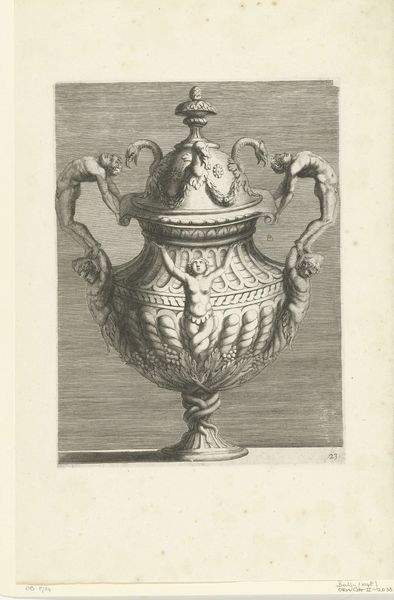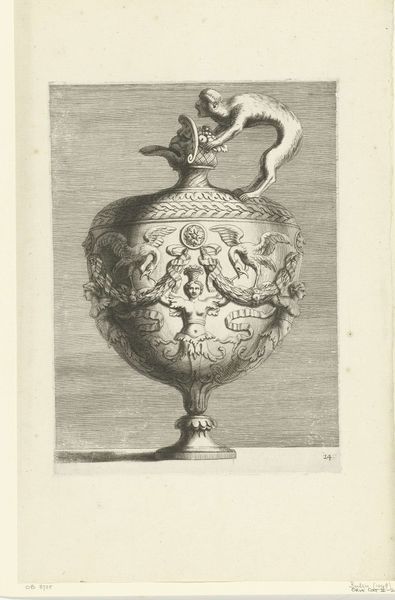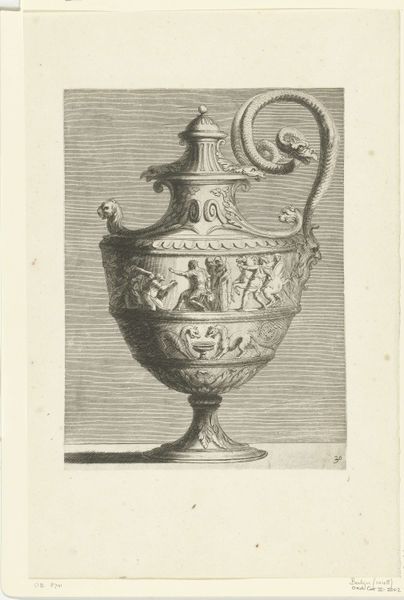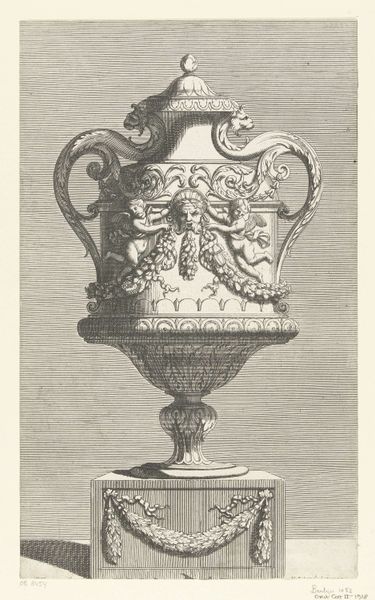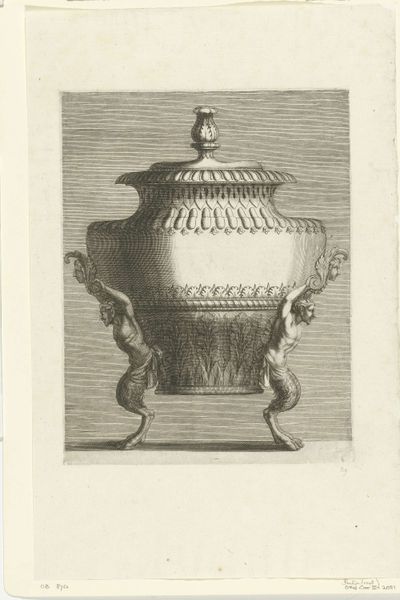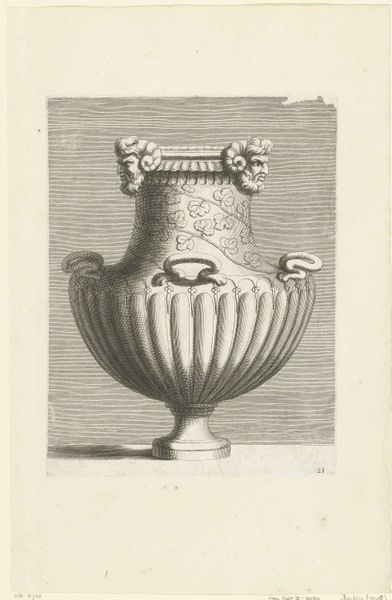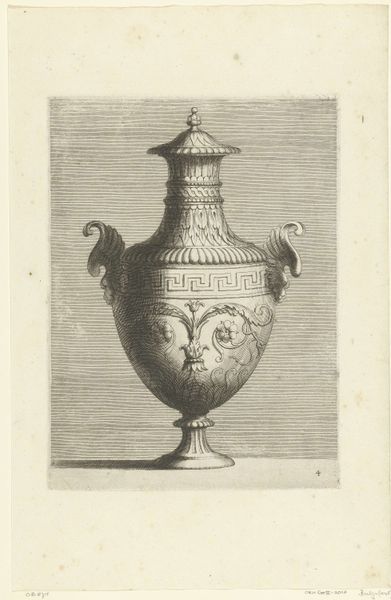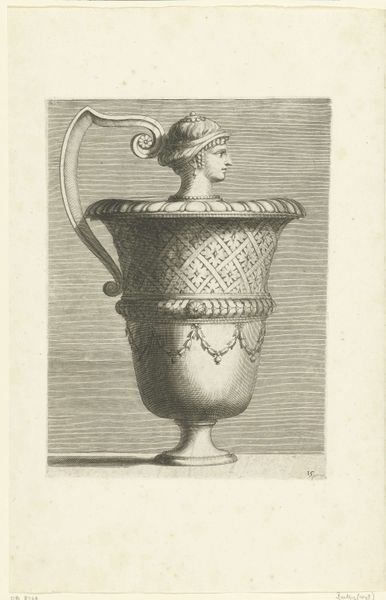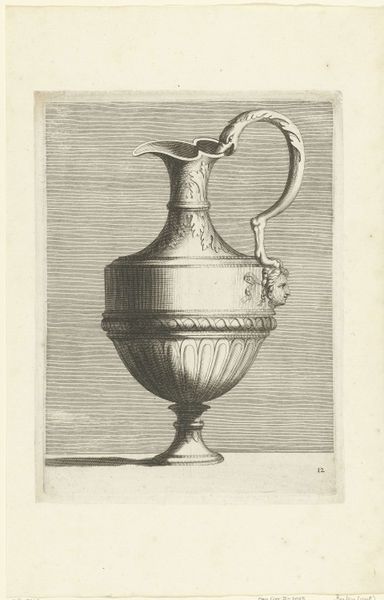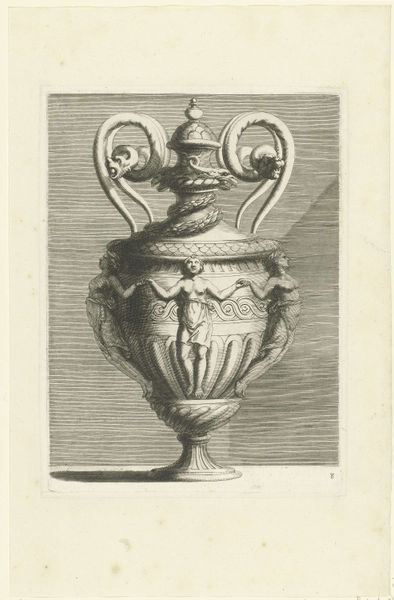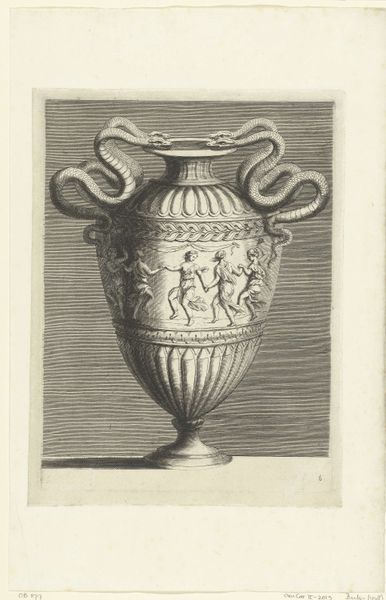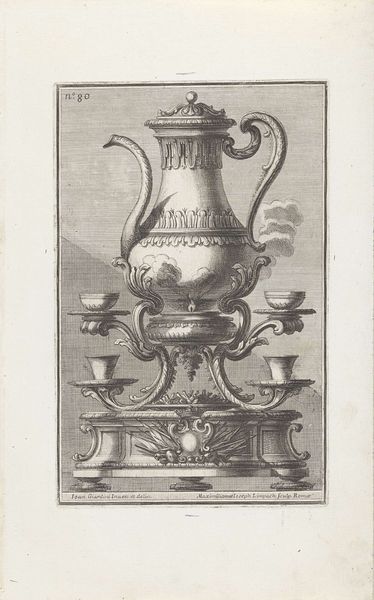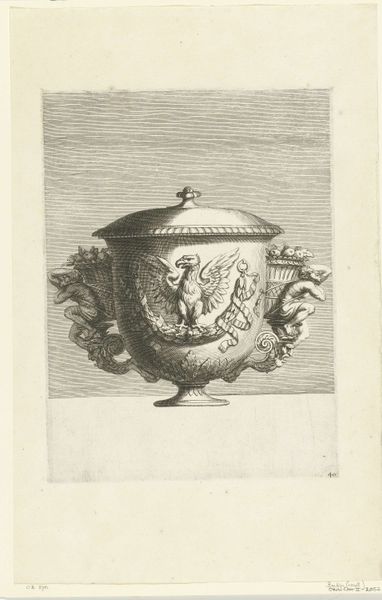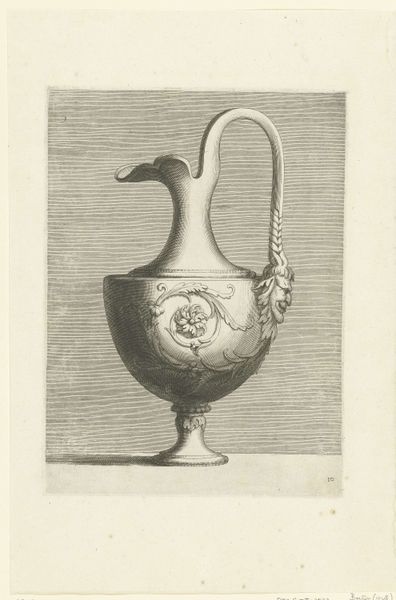
print, etching, engraving
#
baroque
# print
#
etching
#
decorative-art
#
engraving
Dimensions: height 276 mm, width 202 mm
Copyright: Rijks Museum: Open Domain
Françoise Bouzonnet created this covered urn sometime in the 17th century, using etching to emphasize its elegant, classical form. At its heart we find the winged head of Medusa, a symbol laden with complex meanings. In ancient myth, Medusa's gaze could turn men to stone, embodying a primal fear of the monstrous feminine. Yet, her image also served as an apotropaic symbol, warding off evil. Think of the Gorgoneion emblazoned on Athena's shield, a protective emblem derived from the very horror it represents. Here, Bouzonnet's Medusa seems almost decorative, tamed into an ornament. This taming speaks volumes. It reflects how potent symbols are co-opted and transformed across time, their fearful origins softened, their power domesticated for aesthetic pleasure. Is this merely decoration, or does the primal terror still lurk beneath the surface, a subliminal echo of ancient anxieties?
Comments
No comments
Be the first to comment and join the conversation on the ultimate creative platform.
